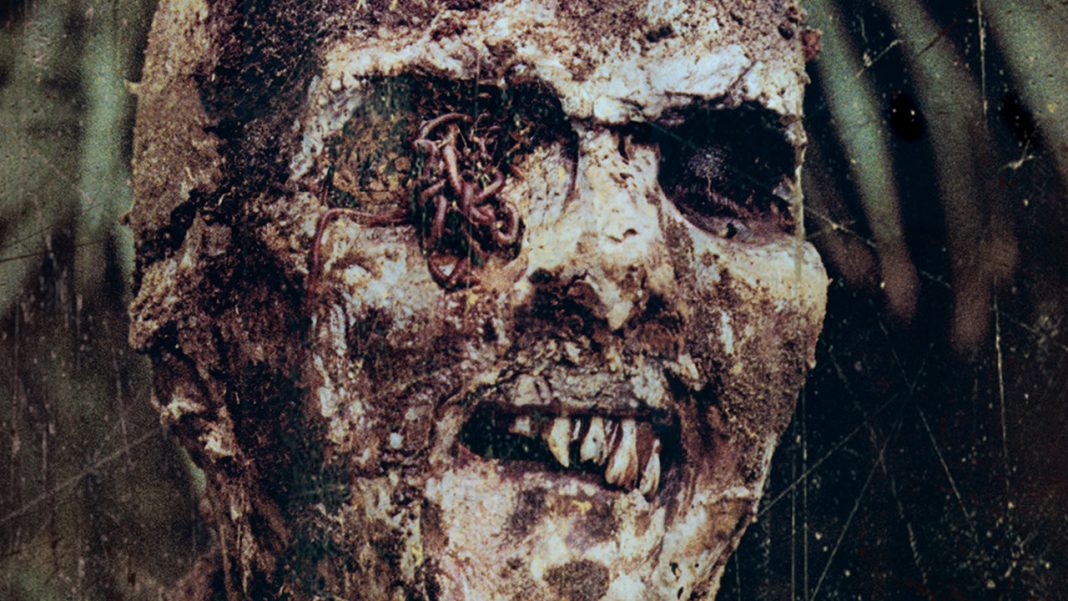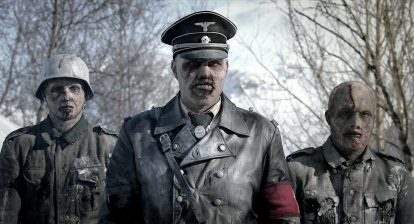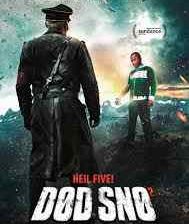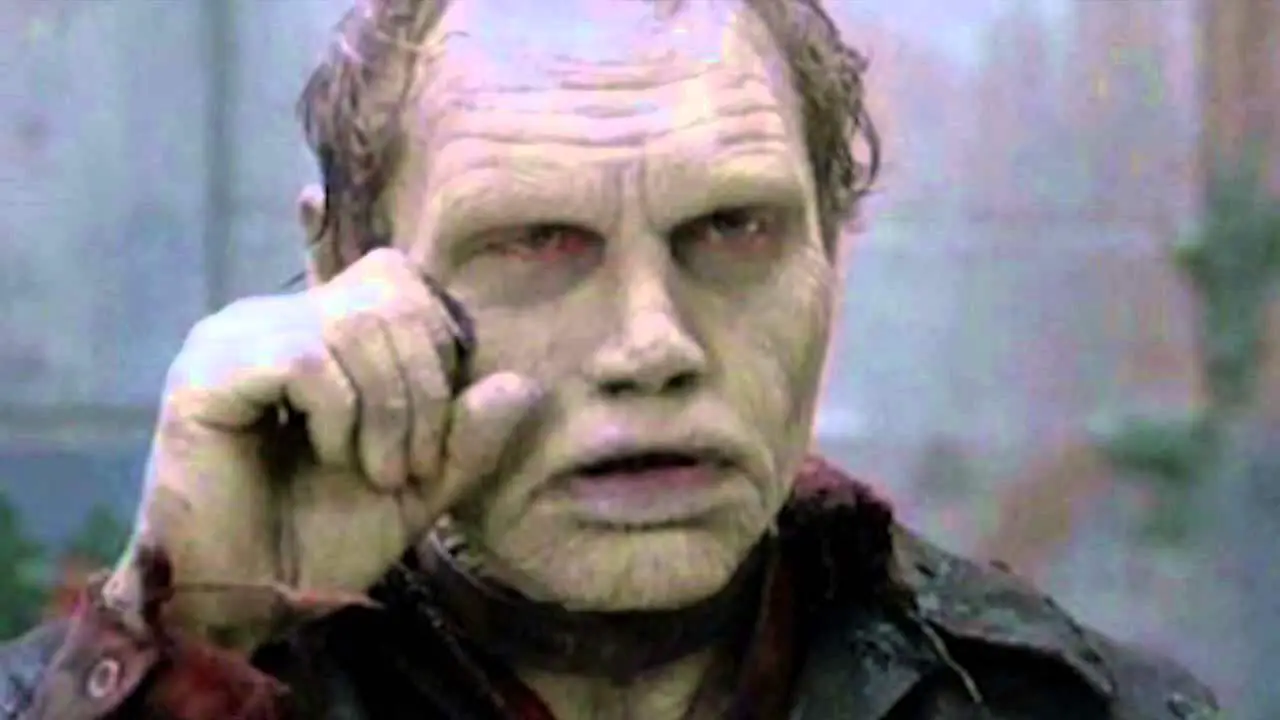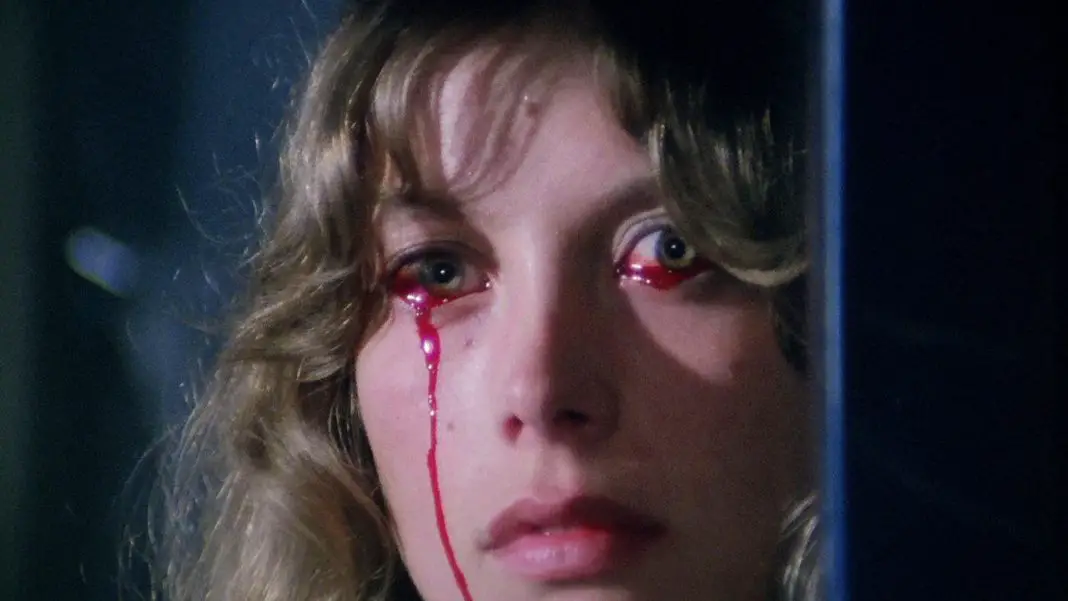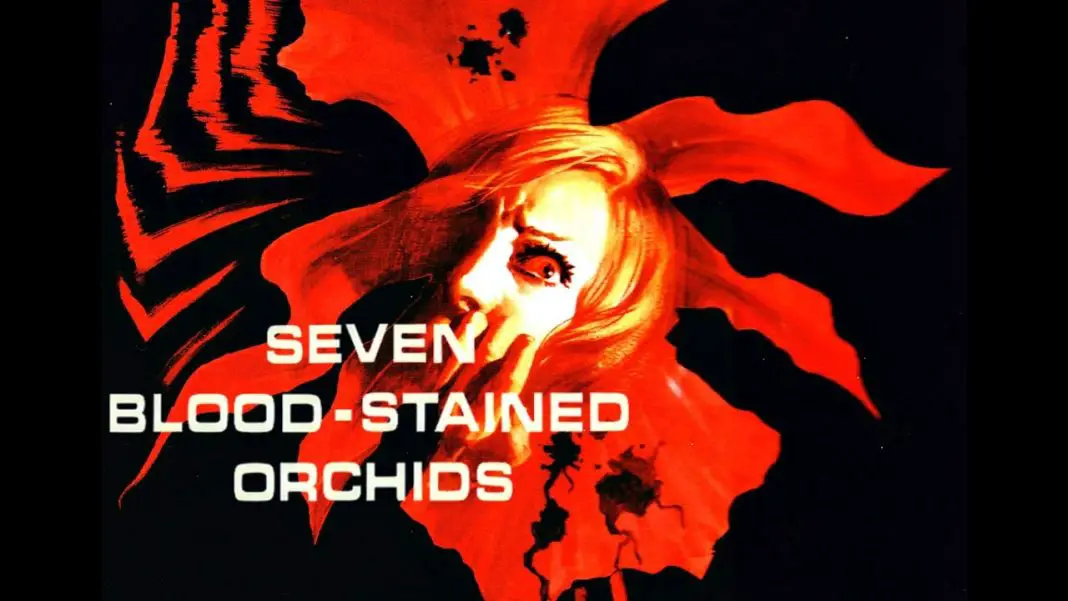It’s a movie of many, many titles. Over thirty years, it’s been known as Zombi 2, Zombie Flesh Eaters, Zombie Dawn of the Dead and more, but the American title Zombie—while the most simple—may also be the most apt. Since its release, the film has gained a reputation for being one of the goriest, most infamous zombie features of all time. Directed by Italian gore-maestro Lucio Fulci, it earns its place among the greats like Night of the Living Dead and Dawn of the Dead and remains the director’s most well-known and influential piece.
There are a lot of reasons for this. Zombie is not just a seminal zombie movie; in some ways it is the zombie movie. Within its runtime, the picture manages to touch on not only every trope but every movement within zombie cinema up to that point. The strongest influence, of course, is taken from George Romero’s Dawn of the Dead. In its home country, Zombie was actually released as a sequel to that. You can feel the influence of Romero in everything from the level of gore to the claustrophobia surrounding the main cast and the feeling of the overwhelming threat that this zombie epidemic represents.
This threat is presented in a much different light than Dawn of the Dead, though, which is appreciated and certainly helps to set the film apart from its immediate predecessor. For the most part, the action is confined to a small island. There, we’re introduced to a mad doctor dealing with practices of reanimation, which brings in an element of the classic, ’50s sci-fi era atomic zombies. The main explanation given on the island, however, is voodoo. While they behave and move like Romero’s living dead, these are technically classic voodoo zombies that go all the way back to the origins of the genre.
Did You Know? Wicked Horror TV Has Classic and Independent Horror Films Available to Stream for Free!

The voodoo explanation makes this unique as a modern zombie film that actually embraces it roots pre-Night of the Living Dead. Every movie of the type tends to ignore everything else as if Romero’s classic was the birth of the entire subgenre, but in reality it has a long and fruitful history that Fulci tries to respect.
Of course, when people talk about Zombie—and even zombie cinema in general—they talk about the gore. Dawn of the Dead really kicked off the movement of having in-your-face gore effects in a zombie movie, but Zombie took the idea and ran with it. This became the first zombie film where the gore effects were front and center. They were the stars and everything else sort of fell into place around them. This doesn’t mean Zombie is bad or that it doesn’t have its place. Far from it; this mentality works when the gore effects are worth showcasing. And in the hands of Lucio Fulci, they always were.
We have gore done in extreme close-up here, with the most effective being a sequence that will probably be talked about forever: the eyeball impalement. It’s one of the most brutal shots in cinematic history, but its success comes down to the filmmaking just as much as it does the shot itself. This is a slow scene, near-perfectly edited as the zombie’s hand pulls the poor woman closer to an enormous splinter sticking out of the door, inch by inch. It feels like it takes forever. Cutting from the eye, to the splinter and back again, each getting bigger and bigger and taking up the frame. There are enough cuts between the two that we, as the audience, think that the film will cut away at any second. Brilliantly, it does not. The actual shot of the wood going through the eye is extremely quick, but it gets exactly the effect that Fulci was going for.
That scene is, above all, pure exploitation. All of the gore in the picture is. It’s showcased front and center like Grand Guignol theatre. While this was representative of the genre at the time, it set the stage for all zombie movies to follow. For that reason, Zombie is truly the essence of zombie cinema itself. It did not just respect everything that had come before it; it influenced nearly everything that came after it.
Zombie films are not known for their happy endings and in that respect, this one does not disappoint. The way it concludes is nothing short of genius and is easily one of the picture’s most underappreciated aspects. It looks at first like our heroes have survived. They’ve put up a hell of a fight and have made it to the ending in one piece. And only once we think they’re finally safe do we get the reveal over the radio that this plague is everywhere. It leaves the audience with a feeling of absolute hopelessness, something that definitely echoes Night of the Living Dead and even Dawn of the Dead to an extent.
All of these elements come together to make what is truly a quintessential zombie film. Zombie truly has it all, in terms of the gore, in terms of the atmosphere, and the exploitation elements as well. It has everything that the sub-genre had contained up to that point and helped set the stage for everything to follow.
